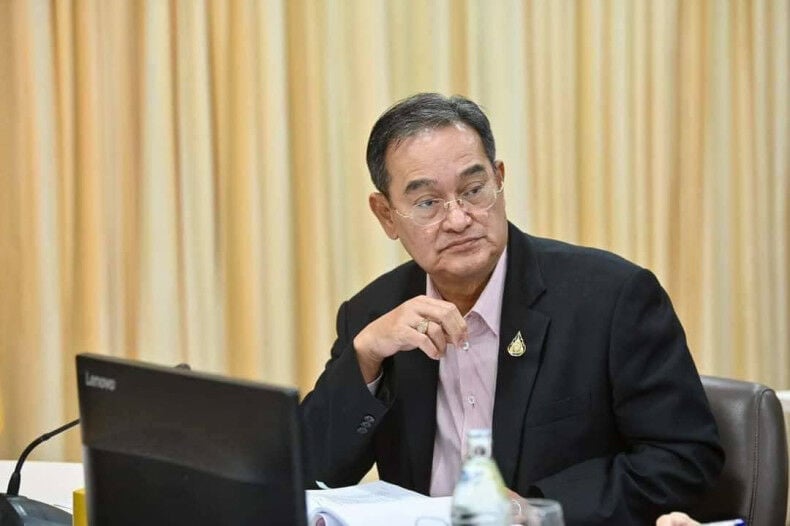Referendum bill set to pass initial House test

According to Chart Thai Pattana Party list-MP Nikorn Chamnong, who leads a sub-committee on the charter referendum, the government-sponsored referendum bill will pass its initial test.
Nikorn stated the bill, which aims to revise the Referendum Act 2021 as part of the charter rewrite process, is ready for House deliberation following a meeting with opposition whips.
Deputy Prime Minister and Commerce Minister Phumtham Wechayachai, who chairs a government panel studying the public votes necessary for charter changes, will present the bill to the House of Representatives today.
The bill was previously posted on the Permanent Secretary’s Office of the PM’s Office website for public feedback before being refined and submitted to the Cabinet for approval.
Nikorn expressed confidence that the bill would pass the House without obstacles, alongside three other pending referendum bills that share similar principles.
The three additional bills were proposed by the ruling Pheu Thai Party, the main opposition Move Forward Party (MFP), and the Bhumjaithai Party.
Pakornwut Udompipatsakul, the chief opposition whip, indicated that the government-sponsored bill is expected to be accepted along with the others before being consolidated during the scrutiny stage.
“Details of the bill will be reviewed by a special House committee.”
Pakornwut noted that the government-sponsored bill primarily combines key proposals from the Pheu Thai’s and MFP’s bills.
Nikorn previously stated that the amendment bill aims to enhance existing referendum laws, making them more comprehensive and applicable to more than just the constitution.
The bill proposes abolishing the double majority rule, which requires more than 50% of eligible voters to participate in a referendum and the majority of those voting to approve the new charter.
This rule has been criticised for hindering the smooth passage of essential laws by making it challenging to meet the minimum requirement.
The bill also seeks to allow referendums to be held alongside national elections to save time and expense and to enable voting via post or electronic means.
Nikorn anticipates that the entire process of amending the referendum law, including screening by the new Senate, will take no more than six months, reported Bangkok Post.
Latest Thailand News
Follow The Thaiger on Google News:


























